Your search “Keep%20the%20Death%20Penalty%20Abolished%20fin%20the%20Philippfines%20%20%20%20%20%20%20%20%20%20/page/www.deathpenaltyindia.com/img/pages/resources/2017Statistics.pdf ”

Member(s)
Avocats Sans Frontières France
on 30 April 2020
The mandate and objectives of Avocats Sans Frontières France are: 1. Defending lawyers and defenders of human rights subject to threats or attacks of any kind because of their exercise professional; 2. Contribute to the effective implementation of human rights, universally recognized for ensuring the acces to any private person to a free and independent […]
2020
France

Member(s)
Witness to Innocence
on 30 April 2020
The mission of Witness to Innocence (WTI) is to unite U.S. exonerated death row survivors and their loved ones to become a powerful force for social justice and transformation. WTI seeks to abolish the death penalty, to reform the U.S. criminal justice system to prevent wrongful convictions, and to secure fair financial compensation and social […]
United States
Member(s)
Legal Defence & Assistance Project (LEDAP)
on 30 April 2020
LEDAP – Legal Defence & Assistance Project provides legal aid to victims of human rights violations, campaign for abolition of the death penalty in Nigeria, documentation of unlawful killings in Nigeria, support to torture survivors, domestic violence support to victims, legislative advocacy on criminal justice, gender violence, human rights. LEDAP is a member of the […]
Nigeria
Member(s)
Center for Constitutional Rights
on 30 April 2020
Center for Constitutional Rights is an American NGO based in New York. The Center for Constitutional Rights is committed to fighting injustice on many fronts, as demonstrated by the breadth of our cases as well as our organizing work. CCR works on a wide range of issues: illegal surveillance and attacks on dissent, Criminal Justice […]
United States
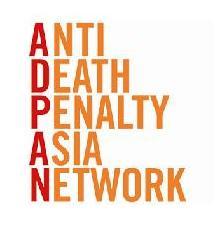
Member(s)
Anti-Death Penalty Asia Network (ADPAN)
on 30 April 2020
The Anti-Death Penalty Asia Network (ADPAN) was founded in Hong Kong on the World Day against the Death Penalty in 2006. In 2014, at its first General Meeting in Taipei, Taiwan, Anti-Death Penalty Asia Network (ADPAN) members approved ADPAN’s Constitution, and ADPAN’s first Executive Committee was elected. ADPAN, an independent Asia-Pacific network committed to working […]
Malaysia

Member(s)
German Coalition to Abolish the Death Penalty
on 30 April 2020
The Initiative gegen die Todesstrafe e.V. (German Coalition to Abolish the Death Penalty – GCADP) was founded in 1997 and is a non-profit organization since 2000. Our association is committed to the worldwide abolition of the death penalty. Our work is based on the contents of the Universal Declaration of Human Rights of 1948 as […]
Germany

Member(s)
Réseau d’alerte et d’intervention pour les droits de l’Homme (RAIDH)
on 30 April 2020
The Alert and Intervention Network for Human Rights (Réseau d’alerte et d’intervention pour les droits de l’Homme (RAIDH) aims to organise, finance and support any work, initiatives, measures, ideas or discussions which aim to defend and promote human rights (particularly civil and political rights, economic, social and cultural rights, international humanitarian rights, rights for refugees, […]
France
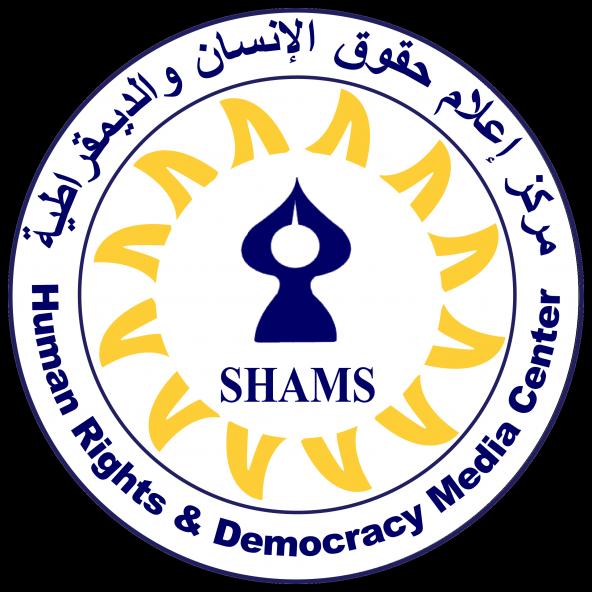
Member(s)
Human Rights and Democracy Media Center (SHAMS)
on 30 April 2020
Human Rights and Democracy Media Center “SHAMS” is a Palestinian non-governmental non-profit organization, established in 2003 in Ramallah by a group of academicians, educated, advocates and human rights activists .“SHAMS” Center holds Special Consultative Status with the Economic and Social Council (ECOSOC) of the United Nations “SHAMS” Center believes that dissemination and generalization of human […]
State of Palestine

Member(s)
ACAT France
on 30 April 2020
ACAT-France – Action by Christians for the Abolition of Torture – is a human rights NGO that campaigns for the abolition of torture and the death penalty, and defends the right to asylum. Founded in 1974, ACAT-France has 28,000 members, including nearly 6,000 supporters and a team of 25 professionals working in its national secretariat. […]
France

Member(s)
Association Marocaine des Droits Humains (AMDH)
on 30 April 2020
Association marocaine des droits humains (AMDH) works towards safeguarding human dignity and for the respect, defence and promotion of human rights. Convinced of the universal nature of these rights, the AMDH bases its action on the international agreements which defend them. It campaigns for them to be respected in the political, civil, economic, social and […]
Morocco
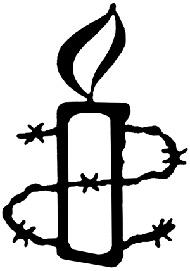
Member(s)
Amnesty International (AI)
on 30 April 2020
Amnesty International (AI) is a worldwide voluntary activist movement working for human rights. It is independent of any government, political ideology, or religious creed, economic interest or religion. It does not support or oppose any government or political system, nor does it support or oppose the views of the victims whose rights it seeks to […]
United Kingdom
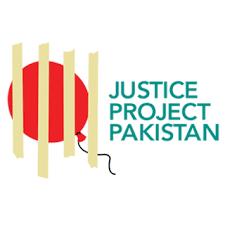
Member(s)
Justice Project Pakistan (JPP)
on 30 April 2020
Justice Project Society, commonly referred to as Justice Project Pakistan (JPP), represents the most vulnerable Pakistani prisoners facing the harshest punishments at home and abroad, including those facing the death penalty, mentally ill prisoners, juvenile prisonners, women, victims of police torture, and overseas Pakistani prisoners. JPP was the winner of the 2016 Franco-German Human Rights […]
Pakistan
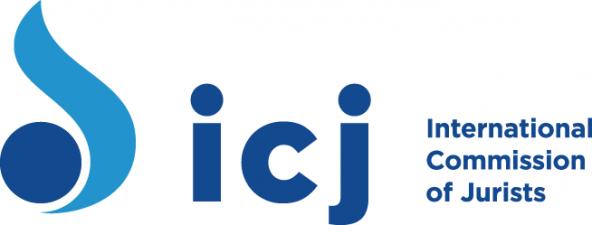
Member(s)
International Commission of Jurists
on 30 April 2020
The International Commission of Jurists (ICJ) is dedicated to promoting rule of law and advancement of human rights around the world. The ICJ statute provides: The Commission carries out activities at the global, regional, national and local level and in particular takes effective steps to: 1. Support and advance the Rule of Law and human […]
Switzerland

Member(s)
Human Rights Association
on 2 May 2023
The Human Rights Association (İnsan Hakları Derneği) is a non-governmental, independent, and voluntary body. The association, which was founded in 1986 by 98 human rights defenders, today has 27 branches, 7 representative offices, and ~8,000 members. İHD is the oldest and largest human rights organization in Turkey and its “sole and specific goal is to […]
2023
Turkey
Document(s)
America’s Experiment With Capital Punishment: Reflections on the Past, Present, and Future of the Ultimate Penal Sanction
By Carol S. Steiker / James R. Acker / Jordan M. Steiker / Richard J. Wilson / Robert Blecker / Stephen B. Bright / Charles S. Lanier / Robert M. Bohm / Carolina Academic Press / Ernest van den Haag / Ruth D. Peterson / William C. Bailey / Jon Sorensen / James Marquart / Victor L., on 8 September 2020
2020
Book
United States
More details See the document
The second edition of America’s Experiment with Capital Punishment is an updated and expanded version of the comprehensive first edition. Chapters, authored by the country’s leading legal and social science scholars, have been revised to include a host of important developments since the 1998 edition. Thus, new evidence and information is presented concerning racial disparities in the administration of the death penalty, wrongful convictions, deterrence, the prediction of future dangerousness, jury decision-making, public opinion about the death penalty, the effects of the capital punishment process on murder victims’ and offenders’ relatives, death row incarceration, the costs of capital punishment, execution methods, and many other issues.
- Document type Book
- Countries list United States
Document(s)
Little Furmans Everywhere: State Court Intervention and the Decline of the American Death Penalty
By Carol S. Steiker & Jordan M. Steiker, on 1 September 2022
2022
Academic report
Trend Towards Abolition
United States
More details See the document
This article retraces the evolution and recent decline of death peanlty in the United States, notablt through state court interventions. These dynamics between judicial and political action illuminate the importance of state court intervention in the story of the American death penalty’s precipitous decline, which has tended to foreground other institutional actors and to neglect the complex interactions among branches of government. State judicial rulings, though often highly technical and, therefore, less visible and accessible to the public, have been a pervasive and powerful force in the two-decade-long diminution of the practice of capital punishment across the United States.
- Document type Academic report
- Countries list United States
- Themes list Trend Towards Abolition
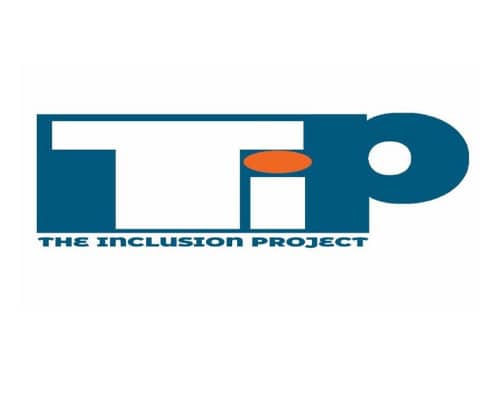
Member(s)
The Inclusion Project
on 13 September 2024
The Inclusion Project (TIP) is a legal services provider founded in 2019 and registered in Nigeria as The Inclusion Project.
2024
Nigeria
Leaflet EN – 2021 World Day Against the Death Penalty
on 23 June 2021
2021
Philippines_Brochure2021_Kapampangan_V2-basse-def
on 23 March 2021
2021
Philippines_Brochure2021_CEBUANO_V2
on 23 March 2021
Philippines_Brochure2021_waray_V2_basse-définition
on 23 March 2021
Philippines_Brochure2021_EN_V4-basse-def
on 23 March 2021
Philippines_Brochure2021_BICOLANO_V1-BD
on 23 March 2021
Philippines_Brochure2021_HILIGAYNON_V1
on 23 March 2021
Philippines_Brochure2021_ILOKANO_V1-BD
on 23 March 2021
Philippines_Brochure2021_MARANAO_V1-BD
on 23 March 2021
Philippines_Brochure2021_PANGASINENSE_V3_basse-def
on 23 March 2021
Philippines_Brochure2021_TAGALOG_V3-basse-def
on 23 March 2021
Philippines_Brochure2021_tausug_V2-BD
on 23 March 2021
Document(s)
Women and the Death Penalty in Iran
By Iran Human Rights, on 8 October 2021
2021
NGO report
Iran (Islamic Republic of)
Women
More details See the document
In observation of the 2021 World Day Against the Death Penalty dedicated to women, Iran Human Rights is providing a report on the women executed in Iran over the last 12 years (2010-2021). The executions in this period are by no means representative of the Islamic Republic of Iran’s complete history of executing women; the number of female political prisoners executed in the 1980s must be acknowledged due to their sheer volume and abhorrent nature. But even today, there is ample evidence of their cruel and inhuman treatment of female prisoners, which will be highlighted in this report.
- Document type NGO report
- Countries list Iran (Islamic Republic of)
- Themes list Women
Document(s)
Resource Guide for Managing Capital Cases Volume II: Habeas Corpus Review of State Capital Convictions
By Asifa Quraishi, Esq. / Federal Judicial Center, on 1 January 2010
2010
Working with...
More details See the document
This guide was created to assist judges and court staff in managing capital habeas corpus cases by providing a summary of relevant law and case-management procedures. Section II, “Management of Individual Capital Habeas Cases,” summarizes the substantive law of federal habeas corpus that has an impact on case management and procedure (such as jurisdiction to appoint counsel, statutes of limitations, and evidentiary hearings) and describes various techniques judges have used to manage individual cases. Section III, “District-Wide and Circuit-Wide Approaches to Capital Habeas Corpus Case Management,” describes several practices used in the federal courts to monitor and streamline capital case management at a district- or circuit-wide level.
- Document type Working with...
- Themes list Networks,
Document(s)
Death Penalty For Drug Offences: Global Overview 2020
By Harm Reduction International (HRI), on 4 May 2021
2021
NGO report
Drug Offenses
More details See the document
Harm Reduction International has monitored the use of the death penalty for drug offences worldwide since our first ground-breaking publication on this issue in 2007.
This report, our tenth on the subject, continues our work of providing regular updates on legislative, policy and practical developments related to the use of capital punishment for drug offences, a practice which is a clear violation of international law.
- Document type NGO report
- Themes list Drug Offenses
Document(s)
Italian Poster 2005
By World coalition against the death penalty , on 10 October 2005
2005
Campaigning
Trend Towards Abolition
More details See the document
Italian Poster 2005
- Document type Campaigning
- Themes list Trend Towards Abolition
Document(s)
Initiatives World Day 2004
By World Coalition against the death penalty , on 10 October 2004
2004
Campaigning
Trend Towards Abolition
frMore details See the document
Initiatives World Day 2004
- Document type Campaigning
- Themes list Trend Towards Abolition
- Available languages Initiatives journée mondiale 2004
Document(s)
Facts and Figures 2007
By World Coaliton against the death penalty , on 10 October 2009
2009
Campaigning
Trend Towards Abolition
frMore details Download [ pdf - 24 Ko ]
Facts and Figures 2007
- Document type Campaigning
- Themes list Trend Towards Abolition
- Available languages Faits et chiffres 2007
Document(s)
Protection of the Rights of Children of Parents Sentenced to Death or Exectued: An Expert Legal Analysis
By Quaker United Nations Office / Stephanie Farrior, on 1 January 2019
2019
NGO report
More details See the document
The QUNO’s report offers an updated review of differents elements of international law on the human rights of the child.
- Document type NGO report
- Themes list International law, World Coalition Against the Death Penalty,
Document(s)
The Death Penalty in the Arab World 2011
By Alejandro Tagarro Cervantes / Amman Center for Human Rights Studies, on 1 January 2011
2011
NGO report
More details See the document
This annual report drafted by ACHRS aims to proportionate an analytical studio of the situation of the death penalty and capital punishment in the Arab World in 2011, and includes detailed information about the 21 countries which constitute the Arab World. It also contains tables and a conclusive reflection on the current state of capital punishment.
- Document type NGO report
- Themes list Country/Regional profiles,
Document(s)
On the possibility of Viet Nam ratifying the Second Optional Protocol to the ICCPR aiming at the Abolition of the Death Penalty
By European Union / United Nations Development Programme / Nguyen Thi Thanh Hai / Nguyen Van Hoan / Nguyen Minh Khue, on 1 January 2019
2019
International law - United Nations
enMore details See the document
This study aims to assess the possibility of Viet Nam ratifying the Second Optional Protocol to the International Covenant on Civil and Political Rights (ICCPR) aiming at the abolition of the death penalty. It analyzes: (a) the current international legal framework and the process of legal development to abolish the death penalty in selected countries, (b) the compatibility between the existing regulations on the death penalty in the Vietnamese legal system and the Second Optional Protocol of the ICCPR, and (c) the assessment of feasibility for abolition of the death penalty in Viet Nam.
- Document type International law - United Nations
- Themes list International law, Country/Regional profiles,
- Available languages Viêt Namese : Khả năng của Việt Nam gia nhập Nghị định thư tùy chọn thứ hai về bãi bỏ hình phạt tử hình theo Công ước quốc tế về các quyền dân sự và chính trị (ICCPR)
Document(s)
Viêt Namese : Khả năng của Việt Nam gia nhập Nghị định thư tùy chọn thứ hai về bãi bỏ hình phạt tử hình theo Công ước quốc tế về các quyền dân sự và chính trị (ICCPR)
By European Union / United Nations Development Programme / Nguyen Thi Thanh Hai / Nguyen Van Hoan / Nguyen Minh Khue, on 8 September 2020
2020
NGO report
Viet Nam
enMore details See the document
Nghiên cứu này nhằm đánh giá khả năng Việt Nam phê chuẩn Nghị định thư không bắt buộc thứ hai đối với Công ước quốc tế về các quyền dân sự và chính trị (ICCPR) nhằm xóa bỏ án tử hình. Nó phân tích: (a) khung pháp lý quốc tế hiện hành và quá trình phát triển pháp lý để xóa bỏ án tử hình ở các quốc gia được chọn, (b) sự tương thích giữa các quy định hiện hành về án tử hình trong hệ thống pháp luật Việt Nam và Nghị định thư tùy chọn thứ hai của ICCPR và (c) đánh giá tính khả thi để bãi bỏ án tử hình ở Việt Nam.
- Document type NGO report
- Countries list Viet Nam
- Themes list International law, Country/Regional profiles,
- Available languages On the possibility of Viet Nam ratifying the Second Optional Protocol to the ICCPR aiming at the Abolition of the Death Penalty
Document(s)
The importance of raising awareness among ambassadors to the African Union on the draft African Protocol on abolition of the death penalty
By FIACAT / Xavière Prugnard, on 1 January 2019
2019
Multimedia content
frMore details See the document
FIACAT press release about the awareness raising workshop for permanent representatives to the African Union.
- Document type Multimedia content
- Themes list International law, Trend Towards Abolition, World Coalition Against the Death Penalty,
- Available languages L'importance de la sensibilisation des ambassadeurs auprès de l'Union africaine sur le projet de Protocol africain sur l'abolition de la peine de mort
Document(s)
FHRI and PRI submission to the UN Sec-Gen report on the status of the death penalty in East Africa – Kenya and Uganda April 2012
By Penal Reform International, on 8 September 2020
2020
NGO report
Kenya
More details See the document
Two trends accompanying the abolition of the death penalty give reason for concern: there is a striking increase in offences that carry the sanction of life imprisonment as the sanction which typically replaces the death penalty following abolition or a moratorium of the death penalty; and a striking increase in prisoners serving this indefinite sentence. Secondly, a differential, harsher treatment is applied to them as compared to other categories of prisoners. At the same time, the development of international standards in any affirmative–if not legally binding– form are lacking. As a consequence states are more frequently enforcing a form of punishment problematic in terms of international human rights standards and norms.
- Document type NGO report
- Countries list Kenya
- Themes list Trend Towards Abolition,
Document(s)
Sentenced to Death: A Report on Washington Supreme Court Rulings In Capital Cases
By American Civil Liberties Union / Washington, on 1 January 2001
2001
NGO report
More details See the document
The ACLU conducted an analysis of court rulings in the 25 Washington cases in which the death sentence has been imposed since 1981, when the current death penalty statute took effect. That analysis of almost two decades of death sentences and executions makes it clear that the system by which we impose and review death sentences in Washington is fundamentally flawed.
- Document type NGO report
- Themes list Networks,
Document(s)
Bloodshed and Lies: Mohammed bin Salman’s Kingdom of Executions
By Reprieve UK and European Saudi Organization for Human Rights, on 31 January 2023
2023
NGO report
Saudi Arabia
arMore details See the document
Saudi Arabia is a flagrant abuser of the right to life. Between 2010 and 2021, Saudi Arabia executed at least 1243 people, making it one of the most rampant executioners in the world. As of December 2022, the Saudi regime had executed at least a further 147 people in 2022, including 81 people in one day in a mass execution on 12 March 2022.
Saudi Arabia’s use of the death penalty has drastically increased since 2015. This escalation has taken place on the watch of Saudi Arabia’s King Salman, who acceded the throne on 23 January 2015, and his son, Crown Prince and Prime Minister Mohammed bin Salman. The annual rate of executions has almost doubled since King Salman and Mohammed bin Salman came to power in 2015. From 2010-2014 there was an average of 70.8 executions per year. From 2015-2022 there was an average of 129.5 executions per year – a rise of 82%. The six bloodiest years of executions in Saudi Arabia’s recent history have all occurred under the leadership of Mohammed bin Salman and King Salman (2015, 2016, 2017, 2018, 2019 and 2022).
- Document type NGO report
- Countries list Saudi Arabia
- Available languages سفك الدماء والأكاذيب: مملكة إعدام محمد بن سلمان
Document(s)
Carrying out executions took a secret toll on workers — then changed their politics
By Chiara Eisner, on 16 November 2022
2022
Article
United States
More details See the document
Most of the workers NPR interviewed reported suffering serious mental and physical repercussions. But only one person said they received any psychological support from the government to help them cope. The experience was enough to shift many of their perspectives on capital punishment. No one who NPR spoke with whose work required them to witness executions in Virginia, Nevada, Florida, California, Ohio, South Carolina, Arizona, Nebraska, Texas, Alabama, Oregon, South Dakota or Indiana expressed support for the death penalty afterward, NPR found.
- Document type Article
- Countries list United States
Document(s)
Living with a Death Sentence in Kenya: Prisoners’ Experiences of Crime, Punishment and Death Row
By Carolyn Hoyle and Lucrezia Rizzelli, on 24 January 2023
2023
Book
Kenya
More details See the document
The Death Penalty Project’s latest report provides a comprehensive analysis of the lives of prisoners on death row in Kenya. It focuses on prisoners’ socio-economic backgrounds and profiles, their pathways to, and motivation for, offending, as well as their experiences of the criminal justice process and of imprisonment. It complements our previous research, a two-part study of attitudes towards the death penalty in Kenya, The Death Penalty in Kenya: A Punishment that has Died Out in Practice.
While 120 countries around the world have now abolished the death penalty, including 25 in Africa, Kenya is one of 22 African nations that continues to retain the death penalty in law, albeit it has not carried out any executions for more than three decades. As such, Kenya is classified as ‘abolitionist de facto’, the United Nations term for a country that has not carried out an execution for at least 10 years. Yet, while state-sanctioned executions no longer occur, hundreds of people are currently living under sentence of death and others are convicted and sentenced to death each year. As long as the death penalty is retained in law, there remains a risk that executions might resume if there is political change. Moreover, the plight and turmoil of those languishing on death row – consistently the poorest and most vulnerable – cannot be ignored. They are disproportionately sentenced to death and suffer the harshest punishments and treatment.
- Document type Book
- Countries list Kenya
Document(s)
The Death Penalty for Drug Offences: Global Overview 2022
on 24 March 2023
2023
NGO report
China
Democratic People's Republic of Korea
Drug Offenses
Indonesia
Iran (Islamic Republic of)
Malaysia
Saudi Arabia
Singapore
Viet Nam
More details See the document
Harm Reduction International has monitored the use of the death penalty for drug offences worldwide since our first ground-breaking publication on this issue in 2007. This report, our twelfth on the subject, continues our work of providing regular updates on legislative, policy and practical developments related to the use of capital punishment for drug offences, a practice which is a clear violation of international standards. As of December 2022, Harm Reduction International (HRI) recorded at least 285 executions for drug offences globally during the year, a 118% increase from 2021, and an 850% increase from 2020. Executions for drug offences are confirmed or assumed to have taken place in six countries: Iran, Saudi Arabia, Singapore, plus in China, North Korea and Vietnam – on which exact figures cannot be provided because of extreme opacity. Therefore, this figure is likely to reflect only a percentage of all drug-related executions worldwide. Confirmed death sentences for drug offences were also on the rise; with at least 303 people sentenced to death in 18 countries. This marks a 28% increase from 2021.
- Document type NGO report
- Countries list China / Democratic People's Republic of Korea / Indonesia / Iran (Islamic Republic of) / Malaysia / Saudi Arabia / Singapore / Viet Nam
- Themes list Drug Offenses
Document(s)
Towards the abolition of the death penalty in Lebanon
By LACR / National Campaign for the Abolition of Death Penalty in Lebanon, on 1 January 2009
2009
Campaigning
More details See the document
Educational booklet compiling testimonies, arguments, legal and historical facts about the path towards abolition in Lebanon.
- Document type Campaigning
- Themes list Public opinion, Public debate, Trend Towards Abolition,
Document(s)
Annual Report: Death Penalty in Iran 2011
By Iran Human Rights (IHR), on 1 January 2011
2011
NGO report
enfafrfafrMore details See the document
The execution wave that began after the June 2009 post-election protests in Iran continues with high frequency. According to the present report, the execution figure in 2011 is currently the highest since the beginning of 1990’s.
- Document type NGO report
- Themes list Minorities, Religion , Country/Regional profiles,
- Available languages Annual Report: Death Penalty in Iran 2012گزارش سالانھ مجازات اعدام در ایران سال ۲۱۰۲Rapport Annuel sur la peine de mort en Iran 2012گزارش سالانه اعدام در ایرا سال ۱۱۲۲Rapport annuel sur la peine de mort en Iran 2011
Document(s)
The Death Penalty in Japan: A report on Japan’s legal obligations under the International Convenant on Civil and Political Rights and an assessment of public attitudes to capital punishment
By Saul Lehrfreund / Death Penalty Project, on 8 September 2020
2020
NGO report
Japan
More details See the document
This report was commissioned by the Death Penalty Project in order to assess Japan’s legal obligations on the use of the death penalty under the ICCPR, and to examine the related subject of public attitudes toward capital punishment in Japan.
- Document type NGO report
- Countries list Japan
- Themes list International law, Public opinion,
Document(s)
Issues Impacting LGBTQ+ Prisoners
By Death Penalty Information Center, on 3 September 2024
2024
NGO report
Cruel, Inhuman and Degrading Treatment and Punishment
Fair Trial
United States
More details See the document
LGBTQ+ people, especially people of color and low income, experience high levels of policing and criminalization, leading to an overrepresentation of these individuals in the incarcerated population. A 2017 study from researchers at the University of California, Los Angeles School of Law, suggests that LGBTQ+ people are three times as likely to be incarcerated than the general population. Once incarcerated, LGBTQ+ people are often subjected to violence from correctional staff and fellow prisoners, as well denied medical care and access to mental health services.
- Document type NGO report
- Countries list United States
- Themes list Cruel, Inhuman and Degrading Treatment and Punishment / Fair Trial
Document(s)
Investigating Attitudes to the Death Penalty in Indonesia Part One – Opinion Formers: An Appetite for Change
By Carolyn Hoyle - The Death Penalty Project, in partnership with LBH Masyarakat and the University of Indonesia, on 28 June 2021
2021
NGO report
Drug Offenses
Indonesia
Public Opinion
More details See the document
In 2019-20, The Death Penalty Project, in partnership with LBH Masyarakat and the University of Indonesia, commissioned Professor Carolyn Hoyle, of The Death Penalty Research Unit at the University of Oxford to conduct research investigating attitudes towards the death penalty in Indonesia.
The findings have been presented in a two-part report; the first details the findings of a nuanced public survey and the second details the findings of interviews conducted with opinion formers.
- Document type NGO report
- Countries list Indonesia
- Themes list Drug Offenses / Public Opinion
Document(s)
Doomed to Repeat: The Legacy of Race in Tennessee’s Contemporary Death Penalty
By Death Penalty Information Center, on 16 June 2023
2023
NGO report
Fair Trial
United States
More details See the document
This report explores the current issues with capital punishment in Tennessee through a historical lens, tracing the origins of the use of the death penalty from lynchings and other forms of racial violence directed at Black Tennesseans. The stories of individuals and communities that have interacted with different facets of Tennessee’s justice system throughout history suggest that, in many ways, even though centuries have passed, the experiences of discrimination toward Tennessee’s communities of color continue. A meaningful understanding of the state’s history and its legacy of violence and racism is essential to avoid repeating the mistakes of the past.
- Document type NGO report
- Countries list United States
- Themes list Fair Trial
Document(s)
Responsible Business Engagement on the Death Penalty. A Practical Guide
By Responsible Business Initiative on the Death Penalty, on 1 January 2019
2019
Working with...
frMore details See the document
Business engagement in the death penalty is critical because of the impact it can have. Putsimply: the power is in your hands. If your business is looking for a human rights issue whereit can achieve measurable change, advocacy on the death penalty must be considered.Global support for the death penalty is declining. Meanwhile, competition for investment isfierce. Governments and the public at large care more about job creation and a healthy economythan a system of executions. Therefore, the voices of businesses and business leaders havea huge role to play in shaping public dialogue about whether to keep – or end – the use ofcapital punishment.
- Document type Working with...
- Themes list Networks, Death Penalty,
- Available languages Entreprises Responsables et Engagements sur la Peine de Mort: Guide Pratique
Document(s)
Myths and Facts about the Death Penalty
By Death Penalty Focus, on 1 January 2009
2009
Arguments against the death penalty
esMore details See the document
8 Myths about the death penalty are explored in this text: 1. the death penalty is needed to keep society safe, 2. the death penalty is applied fairly, 3. the death penalty is used worldwide, 4. the death penalty deters crime, 5. execution is cheaper than permanent imprisonment, 6. the death penalty offers justice to victims’ families, 7. only the truly guilty get the death penalty, 8. religious teachings support the death penalty.
- Document type Arguments against the death penalty
- Themes list Networks,
- Available languages Mitos y Realidades de la Pena de Muerte
Document(s)
Death sentences and executions 2020
By Amnesty International , on 26 May 2021
2021
NGO report
aresfafrruMore details See the document
This report covers the judicial use of the death penalty for the period January to December 2020. As in previous years, information is collected from a variety of sources, including:
– official figures;
– judgements;
– information from individuals sentenced to death and their families and representatives;
– media reports;
– and, for a limited number of countries, other civil society organizations.
Amnesty International reports only on executions, death sentences and other aspects of the use of the death penalty, , such as commutations and exonerations, where there is reasonable confirmation. In many countries governments do not publish information on their use of the death penalty. In China and Viet Nam, data on the use of the death penalty is classified as a state secret. During 2020 little or no information was available on some countries – in particular Laos and North Korea (Democratic People’s Republic of Korea) – due to restrictive state practice.
- Document type NGO report
- Available languages أحكام وعمليات اإلعدام في2020CONDENAS A MUERTE Y EJECUCIONES 2020احکام مرگ و اعدامها۲۰۲۰سالCondamnations à mort et exécutions 2020ГЛОБАЛЬНЫЙ ДОКЛАД СМЕРТНЫЕ ПРИГОВОРЫ И КАЗНИ 2020
Document(s)
Isolation and desolation conditions of detention of people sentenced to death Malaysia
By Carole Berrih, Ngeow Chow Ying, ECPM, ADPAN, on 27 May 2021
2021
NGO report
Death Row Conditions
Malaysia
frMore details See the document
Isolation and Desolation – Conditions of Detention of People Sentenced to Death in Malaysia is the first ever fact-finding mission report on the conditions of detention of death row prisoners in Malaysia.
It examines the use of death penalty in Malaysia as well as the actual situation of people on death row.
This report is not meant to point fingers but rather to put the facts on the table in a transparent manner and work from there. It is mainly an advocacy tool for all abolitionist stakeholders, from civil society actors to the parliamentarians who will keep fighting for the abolition of the death penalty.
- Document type NGO report
- Countries list Malaysia
- Themes list Death Row Conditions
- Available languages Isolement et désespoir conditions de détention des condamnés à mort Malaisie
Document(s)
ISOLATION AND DESOLATION CONDITIONS OF DETENTION OF PEOPLE SENTENCED TO DEATH MALAYSIA – Bahasa Melayu
By Carole Berrih, Ngeow Chow Ying, ECPM, ADPAN, on 27 May 2021
NGO report
Death Row Conditions
Malaysia
More details See the document
Isolation and Desolation – Conditions of Detention of People Sentenced to Death in Malaysia is the first ever fact-finding mission report on the conditions of detention of death row prisoners in Malaysia.
It examines the use of death penalty in Malaysia as well as the actual situation of people on death row.
This report is not meant to point fingers but rather to put the facts on the table in a transparent manner and work from there. It is mainly an advocacy tool for all abolitionist stakeholders, from civil society actors to the parliamentarians who will keep fighting for the abolition of the death penalty.
—————————————
Isolation and Desolation – Conditions of Detention of People Sentenced to Death di Malaysia adalah satu-satunya laporan berasaskan misi mengkaji fakta (fact-finding mission) mengenai keadaan-keadaan penahanan bagi banduan-banduan hukuman mati di Malaysia.
Laporan ini mengkaji pelaksanaan hukuman mati di Malaysia dan juga keadaan sebenar orang-orang yang dijatuhkan hukuman mati.
Laporan ini bukan bertujuan untuk menunding jari terhadap mana-mana pihak, tetapi bertujuan untuk memberi pencerahan kepada fakta-fakta yang ditemui dan berusaha ke atasnya. Laporan ini bertujuan utama sebagai alat advokasi kepada semua pihak yang mempunyai kepentingan dalam pemansuhan, bermula dari ahli persatuan kemasyarakatan sehingga ahli parlimen yang akan berusaha berterusan untuk memansuhkan hukuman mati.
- Document type NGO report
- Countries list Malaysia
- Themes list Death Row Conditions
Document(s)
NGO Media Outreach: Using the Media as an Advocacy Tool
By Coalition for the International Criminal Court, on 1 January 2003
2003
Working with...
More details See the document
A guide for NGOs to use media effectively. This guide explains the importance of media, how to create contacts, how to prepare a media outreach campaign, how to deliver a campaign to the media and how to use available resources to support your media campaign.
- Document type Working with...
- Themes list Networks,
Document(s)
Annual Statistics Report 2022
By Project 39A, on 22 February 2023
2023
NGO report
India
More details See the document
This is the seventh edition of the Death Penalty in India: Annual Statistics Report published by Project 39A at National Law University, Delhi. 2022 represents a significant shift in death penalty adjudication, with the Supreme Court recognising the need to reconsider the capital sentencing framework for the first time since it was laid down in Bachan Singh v. State of Punjab in 1980. In a momentous order, the Supreme Court noted the gaps in the death penalty sentencing framework and has sought to address these concerns through a Constitution Bench towards establishing the components of a real, meaningful and effective capital sentencing hearing. In another decision, the Court laid down guidelines for the collection of mitigating material by trial courts. However, in the same year that the Supreme Court cast grave doubts on the death penalty sentencing framework and its implementation by trial courts, it is of concern that 165 death sentences were imposed by Sessions Courts, the highest in a single year since 2000.
- Document type NGO report
- Countries list India
Document(s)
Casebook of Forensic Psychiatric Practice in Capital Cases
By The Death Penalty Project / Marc Lyall, on 1 January 2018
2018
Working with...
More details See the document
The Death Penalty Project and Forensic Psychiatry Chambers have released two new publications, together providing an authoritative guide on the application of mental health law in capital cases. The resources respond to the knowledge that, in many countries that retain the death penalty, mental health issues are not being sufficiently addressed by the courts, leading to miscarriages of justice and putting vulnerable individuals at risk.This Casebook uses real-life examples to address ethical and professional questions and explore the application of legal principles.
- Document type Working with...
- Themes list Death Penalty,
Document(s)
Death by Geography: A County By County Analysis of the Road to Execution in California
By Natasha Minsker / Romy Ganschow / American Civil Liberties Union / Jeff Gillenkirk / Elise Banducci, on 1 January 2008
2008
NGO report
More details See the document
California’s death penalty is arbitary, unnecessary and a waste of critical resources. Whilst the vast majority of California’s counties have largely abandoned execution in favor of simply sentencing people to die in prison, 10 counties continue to aggressively sentence people to execution, accounting for nearly 85 percent of death sentences since 2000. California’s death penalty has become so arbitary that the county border, not the facts of the case, determines who is sentenced to execution and who is simply sentenced to die in prison. Pursuing executions provides no identifiable benefit to these counties but costs millions.
- Document type NGO report
- Themes list Country/Regional profiles,
Document(s)
Turning the tide in the Caribbean: towards an end to the death penalty
By Amnesty International, on 1 January 2013
2013
Campaigning
More details See the document
This toolkit is for activists working towards the abolition of the death penalty in the English-speaking Caribbean. Drawing on many years of Amnesty International’s work to promote all human rights and to oppose violations of those rights, including the death penalty, it provides practical tips and suggestions for advocacy and campaigning. It sets out key arguments and relevant international human rights standards and provides information about resources that activists can use to strengthen and broaden the campaign against the death penalty in the English-speaking Caribbean.
- Document type Campaigning
- Themes list Public debate, Country/Regional profiles,
Document(s)
Nigeria: Waiting for the Hangman
By Amnesty International, on 1 January 2008
2008
NGO report
frMore details See the document
More than 720 men and 11 women are under sentence of death in Nigeria’s prisons. They have one thing in common, beyond not knowing when they will be put to death. They are poor. From their first contact with the police, through the trial process, to seeking pardon, those with the fewest resources are at a serious disadvantage. This text describes the treatment of the death penalty in Nigeria.
- Document type NGO report
- Themes list Due Process , Country/Regional profiles,
- Available languages Nigéria: Pour qui vient le bourreau?
Document(s)
Joint Letter Calling on the HRC to Renew the Mandate of the Special Rapporteur on Human Rights in Iran
By Human Rights Watch / Impact Iran , on 1 January 2018
2018
Multimedia content
Iran (Islamic Republic of)
More details See the document
In this joint letter many Iranian and international human rights organizations, urge the governments they called to support the renewal of the mandate of the Special Rapporteur on human rights in the Islamic Republic of Iran, during the 37th session of the UN Human Rights Council.
- Document type Multimedia content
- Countries list Iran (Islamic Republic of)
- Themes list Cruel, Inhuman and Degrading Treatment and Punishment, Discrimination,
Document(s)
Handbook of Forensic Psychiatric Practice in Capital Cases
By The Death Penalty Project / Nigel Eastman / Richard Latham / Marc Lyall / Sanya Krljes, on 1 January 2018
Working with...
More details See the document
The Death Penalty Project and Forensic Psychiatry Chambers have released two new publications, together providing an authoritative guide on the application of mental health law in capital cases. The resources respond to the knowledge that, in many countries that retain the death penalty, mental health issues are not being sufficiently addressed by the courts, leading to miscarriages of justice and putting vulnerable individuals at risk.This Handbook guides the reader through the role of the forensic psychiatrist in criminal proceedings and key principles of mental health law.
- Document type Working with...
- Themes list Death Penalty,
Document(s)
The Logical Framework Approach
By Greta Jenson / Bond - For International Development, on 1 January 2010
2010
Campaigning
More details See the document
The logframe is a tool for concisely describing the results of an LFA project design process, as it summarises in a standard format: What the project is going to achieve, what activities will be carried out, what means/resources/inputs (human, technical, infrastructural, etc.) are required, what potential problems could affect the success of the project, how the progress and ultimate success of the project will be measured and verified.
- Document type Campaigning
- Themes list Networks,
Document(s)
Philippines – Committee on the Elimination of Discrimination Against Women – Death Penalty – June 2022
on 21 July 2022
2022
NGO report
Philippines
Women
More details Download [ pdf - 443 Ko ]
The Government of the Philippines has taken commendable steps toward protecting and promoting the rights of women overseas Filipino workers (OFWs), but those workers remain vulnerable to exploitation and abuse, and when they come into conflict with the law in their host countries, their vulnerabilities are compounded by linguistic and legal barriers, as well as judicial systems which fail to account for the gendered context in which they allegedly committed criminal acts. The Government of the Philippines should do more to ensure protection of the rights of these women OFWs, particularly when they are at risk of being sentenced to death.
- Document type NGO report
- Countries list Philippines
- Themes list Women
Document(s)
2021 OHCHR Report on Deterrence: High-level panel discussion on the question of the death penalty
By Office of the High Commissioner for Human Rights (OHCHR), on 14 January 2022
2022
United Nations report
Public Opinion
aresfrruzh-hantMore details See the document
The present report is submitted pursuant to Human Rights Council resolutions 26/2 and 42/24. It provides a summary of the high-level panel discussion on the question of the death penalty held on 23 February 2021 at the forty-sixth session of the Council. The panel discussion addressed the human rights violations related to the use of the death penalty, in particular with respect to whether the use of the death penalty has a deterrent effect on crime rates.
- Document type United Nations report
- Themes list Public Opinion
- Available languages حلقة نقاش رف عة المستوى بشأن مسألة عقوبة الإعدامInforme de la OACDH 2021 sobre el efecto disuasorio : Mesa redonda de alto nivel sobre la cuestión de la pena de muerteRapport HCDH 2021 sur l'effet dissuasif : Réunion-débat de haut niveau sur la question de la peine de mortОбсуждение в рамках дискуссионной группы высокого уровня вопроса о смертной казни,способствует ли ее применение сдерживанию преступности2021年联合国威慑效应报告 - 关于死刑问题的高级别专题小组讨论会
Document(s)
The Last Meals Project
By The Last Meals Project, on 8 September 2020
2020
Working with...
More details See the document
This series visually documents the face and last meal of a convicted killer and is without question honest and true. This will be an ongoing project as executions continue to take place in the United States.
- Document type Working with...
- Themes list Networks,
Document(s)
Guidelines for Submitting Communications
By African Commission on Human and Peoples' Rights, on 8 September 2020
Working with...
frfrenMore details See the document
This document outlines the functions of the Commission, how to make presentations in front of the Commission, the procedures of examining the communication and the recommendations of the Commission.
- Document type Working with...
- Themes list Networks,
- Available languages Ligne Directrices pour la Commission Africaine des Droits de l'Hommes et des PeuplesProcedure (de la Communication de la Commission Africaine des Droits de l'Homme et Des Peuples)Procedure (Communications Procedure of the African Commission for Human and Peoples rights)
Document(s)
Procedure (Communications Procedure of the African Commission for Human and Peoples rights)
By African Commission on Human and Peoples' Rights, on 8 September 2020
Working with...
frfrenMore details See the document
This document describes the procedures of the African Commission on Human and Peoples’ Rights stating who can apply to the court and what measures they may take.
- Document type Working with...
- Themes list Networks,
- Available languages Ligne Directrices pour la Commission Africaine des Droits de l'Hommes et des PeuplesProcedure (de la Communication de la Commission Africaine des Droits de l'Homme et Des Peuples)Guidelines for Submitting Communications
Document(s)
Anything But Humane
By Amnesty International - USA, on 8 September 2020
Arguments against the death penalty
More details See the document
A fact sheet on the lethal injection in the United States. This page details the process of lethal injection with statements of US health professional associations on participation in execution.
- Document type Arguments against the death penalty
- Themes list Lethal Injection,
Document(s)
Key legal Instruments and texts adopted on Abolition of the death penalty by the Council of Europe
By Council of Europe, on 24 January 2023
2023
Regional body report
Trend Towards Abolition
frMore details See the document
All the Council of Europe documents related to abolition of the death penalty gathered in one page : decisions of the Committee of Ministers, resolutions of the Parliamentary Assembly, Treaties…
- Document type Regional body report
- Themes list Trend Towards Abolition
- Available languages Instruments juridiques clés et textes adoptés sur l'abolition de la peine de mort par le Conseil de l'Europe
Document(s)
10 Steps to Writing a UPR Stakeholder Report
By The Advocates for Human Rights, on 1 January 2014
2014
Working with...
More details See the document
This four-page document proposes a roadmap for organisations interested in submitting reports to the United Nations’ Universal Periodic Review of Human Rights.
- Document type Working with...
- Themes list International law,
Document(s)
The International Library of Essays on Capital Punishment, Volume 2 : Abolition and Alternatives to Capital Punishment
By Peter Hodgkinson / Ashgate Publishing, on 8 September 2020
2020
Book
More details See the document
The essays selected for this volume develop conventional abolition discourse and explore the conceptual framework through which abolition is understood and posited. Of particular interest is the attention given to an integral but often forgotten element of the abolition debate: alternatives to capital punishment. The volume also provides an account of strategies employed by the abolition community which challenges tired methodologies and offers a level of transparency previously unseen. This collection tackles complex but fundamental components of the capital punishment debate using empirical data and expert observations and is essential reading for those wishing to comprehend the fundamental issues which underpin capital punishment discourse.
- Document type Book
- Themes list Trend Towards Abolition, Death Penalty,
Document(s)
The International Library of Essays on Capital Punishment, Volume 1 : Justice and Legal Issues
By Peter Hodgkinson / Ashgate Publishing, on 8 September 2020
Book
More details See the document
This volume provides up-to-date and nuanced analysis across a wide spectrum of capital punishment issues. The essays move beyond the conventional legal approach and propose fresh perspectives, including a unique critique of the abolition sector. Written by a range of leading experts with diverse geographical, methodological and conceptual approaches, the essays in this volume challenge received wisdom and embrace a holistic understanding of capital punishment based on practical experience and empirical data. This collection is indispensable reading for anyone seeking a comprehensive and detailed understanding of the complexity of the death penalty discourse.
- Document type Book
- Themes list Death Penalty,
Document(s)
The International Library of Essays on Capital Punishment, Volume 3 : Policy and Governance
By Peter Hodgkinson / Ashgate Publishing, on 8 September 2020
Book
More details See the document
This volume provides analyses of a range of subjects and issues in the death penalty debate, from medicine to the media. The essays address in particular the personal complexities of those involved, a fundamental part of the subject usually overridden by the theoretical and legal aspects of the debate. The unique personal vantage offered by this volume makes it essential reading for anyone interested in going beyond the removed theoretical understanding of the death penalty, to better comprehending its fundamental humanity. Additionally, the international range of the analysis, enabling disaggregation of country specific motivations, ensures the complexities of the death penalty are also considered from a global perspective.
- Document type Book
- Themes list Death Penalty,
Document(s)
Capital Punishment A Hazard to a Sustainable Criminal Justice System?
By Ashgate Publishing / Lill Scherdin, on 8 September 2020
Book
More details See the document
This book questions whether the death penalty in and of itself is a hazard to a sustainable development of criminal justice. As most jurisdictions move away from the death penalty, some remain strongly committed to it, while others hold on to it but use it sparingly. This volume seeks to understand why, by examining the death penalty’s relationship to state governance in the past and present. It also examines how international, transnational and national forces intersect in order to understand the possibilities of future death penalty abolition.The chapters cover the USA – the only western democracy that still uses the death penalty – and Asia – the site of some 90 per cent of all executions. Also included are discussions of the death penalty in Islam and its practice in selected Muslim majority countries. There is also a comparative chapter departing from the response to the mass killings in Norway in 2011. Leading experts in law, criminology and human rights combine theory and empirical research to further our understanding of the relationships between ways of governance, the role of leadership and the death penalty practices.
- Document type Book
- Themes list Due Process , International law, Trend Towards Abolition,
Document(s)
Capital Punishment: New Perspectives
By Peter Hodgkinson / Ashgate Publishing, on 1 January 2013
2013
Book
More details See the document
The authors argue that capital litigators should use their skills challenging the abuses not just of process, but of the conditions in which the condemned await their fate, namely prison conditions, education, leisure, visits, medical services, etc. In the aftermath of successful constitutional challenges it is the beneficiaries (arguably those who are considered successes, having been ‘saved’ from the death penalty and now serving living death penalties of one sort or another) who are suffering the cruel and inhumane alternative.Part I of the book offers a selection of diverse, nuanced examinations of death penalty phenomena, scrutinizing complexities frequently omitted from the narrative of academics and activists. It offers a challenging and comprehensive analysis of issues critical to the abolition debate. Part II offers examinations of countries usually absent from academic analysis to provide an understanding of the status of the debate locally, with opportunities for wider application.
- Document type Book
Document(s)
No Human Way to Kill
By Robert Priseman / Artfractures, on 1 January 2009
2009
Working with...
More details See the document
‘No Human Way to Kill’ comprises an exhibition of twelve etchings produced by the Goldmark Atelier in 2007 and a 102 page book published by Seabrook Press in association with the Human Rights Centre at the Universtiy of Essex in 2009. The etchings were first displayed at the University of San Francisco in 2008 and the European Commission Gallery in 2009.
- Document type Working with...
- Themes list Networks,
Document(s)
Closing the Slaughterhouse
By Dale M Brumfield, on 8 December 2022
2022
Book
United States
More details See the document
On July 1, 2021, Virginia ended a 413-year tradition by abolishing the death penalty.
Many of those convicted from 1608 to 2017 deserved harsh punishment – but Virginia took harsh to a whole new level with its “finality over fairness” philosophy. Four hundred years of her racist, mob-driven capital punishment system ensnared many innocent and undeserving victims under the toxic guises of protecting white citizens or being “tough on crime.” So many of those killed by the state died with their guilt or innocence lost to history.
Virginia leads the nation with 1,390 executions. After a 1976 Supreme Court decision, Virginia institutionalized and streamlined the parade to the death chamber more efficiently than any other state, executing between 1976 and 2017 a breathtaking 73 percent of all who received death sentences. The national average is 16 percent.
- Document type Book
- Countries list United States
Document(s)
The Death Penalty: The Ultimate Punishment
By Amnesty International, on 1 January 2008
2008
Campaigning
enfresMore details See the document
Campaigning toolkit published by Amnesty International. A 16-page detailed advocacy document explaining why the abolition of the death penalty is necessary and how the theories behind capital punishment get it wrong.
- Document type Campaigning
- Themes list Networks,
- Available languages Korean : 사형제도 극단적 형벌La Peine de Mort: Le Châtiment SuprêmeLa Pena de Muerte: El Castigo Máximp
Document(s)
WMA Resolution to Reaffirm the WMA’s Prohibition of Physician Partecipation in Capital Punishment
By World Medical Association, on 8 September 2020
2020
NGO report
More details See the document
The World Medical Association has strengthened its opposition to capital punishment with a resolution at its recent conference in Bangkok that “physicians will not facilitate the importation or prescription of drugs for execution.”
- Document type NGO report
- Themes list Trend Towards Abolition,
Document(s)
Juvenile Offenders Awaiting Execution in Yemen : “Look at Us with a Merciful Eye”
By Human Rights Watch, on 1 January 2013
2013
NGO report
arMore details See the document
The 30-page report found that at least 22 individuals have been sentenced to death in Yemen despite evidence that they were under age 18 at the time of their alleged crimes. In the last five years, Yemen has executed at least 15 young men and women who said they were under 18 at the time of their offense.
- Document type NGO report
- Themes list Juveniles, Country/Regional profiles,
- Available languages "انظروا إلينا بعين الرحمة" الأحداث على ذمة الإعدام في اليمن
Document(s)
Sentenced to oblivion. Fact-finding mission on death row. Cameroon
By Ensemble contre la peine de mort (ECPM) / Nestor Toko / Carole Berrih, on 8 September 2020
2020
NGO report
frMore details See the document
The report “Sentenced to oblivion. Fact-finding mission on death row. Cameroon”, which was officially launched on 21 June at the Delegation of the European Union from Yaoundé to Cameroon, is the result of an unprecedented fact-finding mission, conducted from May to October 2018 in five Cameroonian prisons by the Cameroonian Lawyers’ Network against the Death Penalty (Racopem) and the association ECPM (Ensemble contre la peine de mort).
- Document type NGO report
- Themes list Death Row Conditions, Country/Regional profiles,
- Available languages Condamnés à l'oubli. Mission d'enquête dans les couloirs de la mort. Cameroun
Document(s)
Take action on the death penalty
By The Advocates for Human Rights, on 8 September 2020
Campaigning
More details See the document
Two-page guide with tips and contacts for individuals interested in getting started in anti-death penalty activism in the US.
- Document type Campaigning
- Themes list Public opinion,
Document(s)
The Juvenile Death Penalty Today: Death Sentences and Executions for Juvenile Crimes, January 1, 1973 – February 28, 2005
By Victor Streib / Ohio Northern University, on 8 September 2020
Article
United States
More details See the document
This is Issue #77, the final issue of these periodic reports, having first been launched on June 15, 1984. On that date, the death penalty for juvenile offenders (defined as those under age 18 at the time of their crimes) was an obscure issue in law as well as in political and social arenas. During the last twenty-one years, these reports have been with us (1) through the intense litigation of the late 1980s, (2) through our society’s near hysteria about violent juvenile crime in the 1990s, (3) into the era of the international pressure on the United States to abandon this practice, and (4) now at the end of this practice. The validity and influence of these reports is indicated by thecitations to them in the opinions of leading courts, including the United States Supreme Court: Roper v. Simmons, 125 S.Ct. 1183, 1192, 1193, 1210, 1211, 1221 (2005); In re Stanford, 537 U.S. 968, 971 (2002); and Stanford v. Kentucky, 492 U.S. 361, 373 (1989). In the litigation leading up to the final juvenile death penalty case before the United States Supreme Court (Roper v. Simmons, 125 S.Ct. 1183 (2005)), the Missouri Supreme Court majority opinion included 12 citations to these reports: See Simmons v. Roper, 112 S.W.3d 397, 408, 409, 411 (Mo. 2003). This final issue of this periodic report is intended to document the status of the death penalty for juvenile offenders as ofthe day before the United States Supreme Court held this practice to be unconstitutional. These reports sketch the characteristics of the juvenile offenders and their crimes who have been sentenced to death, who have been executed, and who are currently under death sentences. —- See bottom left hand corner of web page.
- Document type Article
- Countries list United States
- Themes list Juveniles,
Document(s)
Human Rights and the Death Penalty
By The Advocates for Human Rights, on 1 January 2012
2012
Campaigning
More details See the document
Four-page introduction to the status of the death penalty in international human rights law and the global trend abolition.
- Document type Campaigning
- Themes list International law, Trend Towards Abolition,
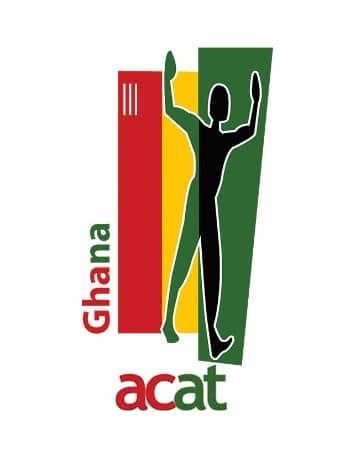
Member(s)
ACAT, GHANA
on 3 May 2024
To raise awareness about torture and the death penalty among churches and Christian organisations and civil society
2024
Ghana
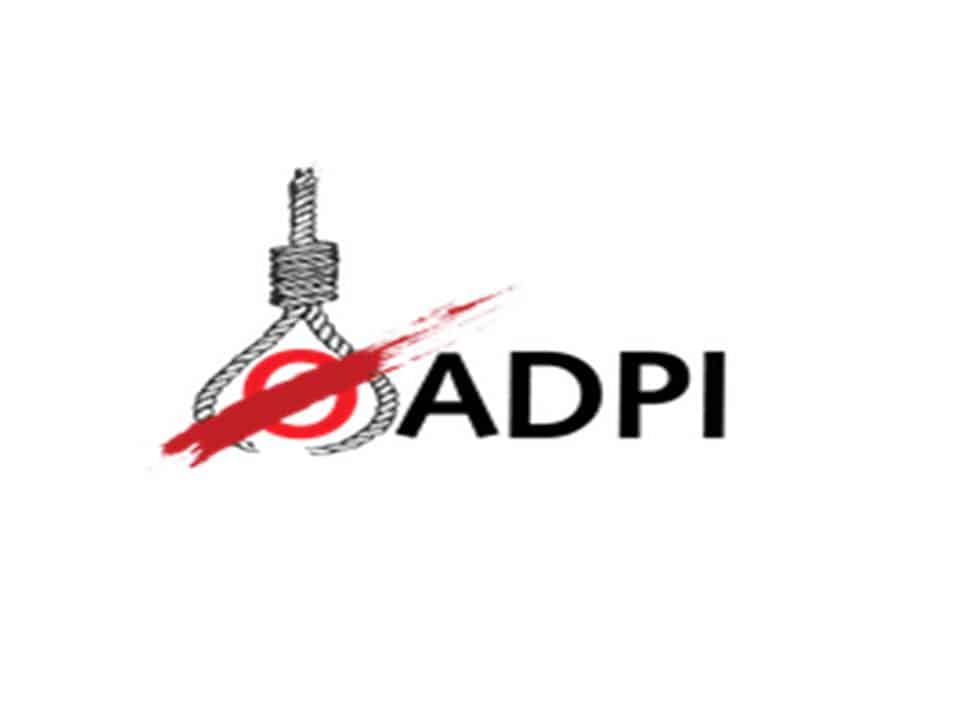
Member(s)
Abolition Death Penalty of Iraq Organization
on 30 June 2023
According to the Abolition Death Penalty of Iraq Organization, capital punishment is the state’s terminology for murder. Individuals murder each other, but states sentence individuals to ‘capital punishment.’ The demand to end capital punishment and prohibit murder stems from opposition to intentional, deliberate and planned murder of one by the other. That a state or […]
2023
Iraq
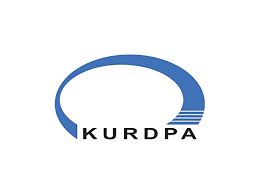
Member(s)
Kurdpa Human Rights Organization
on 29 November 2023
KURDPA is a human rights organization and independent news agency, and is a leading source for the latest information on Kurdistan in Iran, with daily coverage in three languages. Founded in 2011, KURDPA’s on-the-ground reporting highlights human rights concerns affecting the Iranian Kurdish community. Kurdpa Organization intends to compensate the existing shortcomings in identifying and […]
2023
Iran (Islamic Republic of)
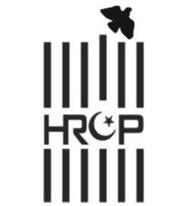
Member(s)
Human Rights Commission of Pakistan
on 30 April 2020
Founded in 1986 and registered in 1987, the Human Rights Commission of Pakistan (HRCP) is an independent, democratic, nonpartisan organization committed to supporting human rights in the country. Over the last three decades, HRCP has worked for women’s empowerment and gender equality, the rights of religious minorities, rule of law and access to justice, democratic […]
2020
Pakistan
Member(s)
Catholic Commission for Social Justice (CCSJ)
on 30 April 2020
Mandate and goals : To be a fearless united voice challenging injustice, awakening social consciousness and fostering integral development. We strive for this through: Social Justice Education and Advocacy; Promoting people-centred development, and; Working for the transformation of inequitable structures and systems Kind of actions : Promote and create opportunities, structures and programmes to achieve […]
Trinidad and Tobago
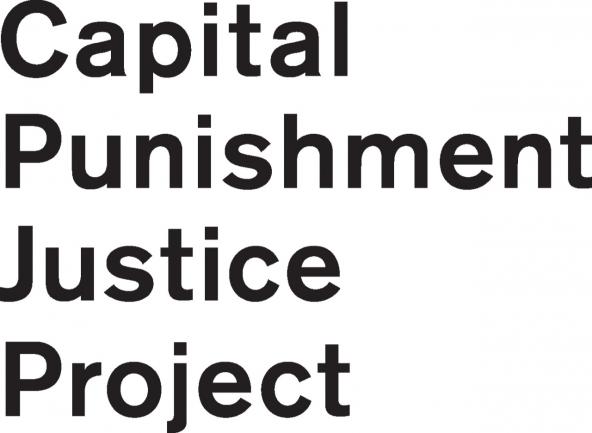
Member(s)
Capital Punishment Justice Project (CPJP)
on 30 April 2020
Capital Punishment Justice Project – CPJP (formerly known as Reprieve Australia) is an Australian NGO working to assist in the provision of effective legal representation and humanitarian assistance to those facing the death penalty at the hands of the State. CPJP also works to raise awareness of the application of the death penalty by the […]
Australia

Member(s)
Association Justice et Miséricorde (AJEM)
on 30 April 2020
The Association Justice and Mercy (AJEM) is a Lebanese nonprofit, nonpolitical and nonsectarian nongovernmental organization (NGO) created in 1996 at the initiative of a group of social workers. AJEM deals mainly with the right of prisoners in Lebanon, and more generally with human rights, the fight against torture and other cruel, inhuman and degrading treatment, […]
Lebanon
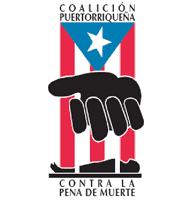
Member(s)
Puerto Rican Coalition Against Death Penalty
on 30 April 2020
The Puerto Rican Coalition against the Death Penalty (PCADP) is a non-party, non-sectarian organisation incorporated in Puerto Rico in March 2005 to promote the elimination of the capital punishment.The PCADP aims to join efforts among the different abolitionist organisations and activists in Puerto Rico. Its Statement of Principles emphasises that it does not believe in […]
Puerto Rico
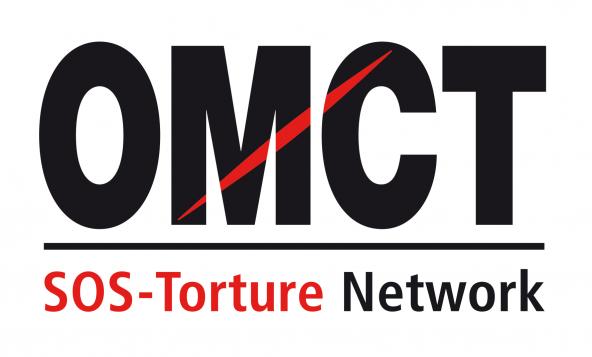
Member(s)
Organisation Mondiale Contre la Torture (OMCT)
on 30 April 2020
The OMCT is an independent, non-partisan, non-sectarian, Swiss international non-governmental organisation, founded in Geneva in 1985. It is today the leading global civil society network against torture including more than 200 local member organisations operating in over 90 countries around the world. Driven by the needs of its SOS-Torture Network members, the OMCT engages in […]
Switzerland

Member(s)
Communità di Sant’Egidio
on 30 April 2020
Sant’Egidio is a Christian community born in 1968, right after the second Vatican Council. An initiative of Andrea Riccardi, it was born in a secondary school in the centre of Rome. With the years, it has become a network of communities in more than 70 countries of the world. The Community pays attention to the […]
Italy
Member(s)
Leaders Organization
on 30 April 2020
Leaders Organization is a Palestinian youth led non-governmental organization that was established in 2002.The Organization prides itself in its principles and unique approach to development in the Palestinian territories. At the time, it was established to allow youths to participate in serving their society. Since then, Leaders have established a reputation for working with, serving, […]
State of Palestine
Member(s)
Bayt Al Hikma
on 30 April 2020
Bayt Al Hikma is a non-governmental organization founded in 2007 whose main objective is to promote the values of human rights and individual freedoms. Our activities revolve around two themes 1. Values and individual freedoms 2. The promotion and protection of children. Our action plan is as follows: • Annual Report: Prepare an annual report […]
Morocco

